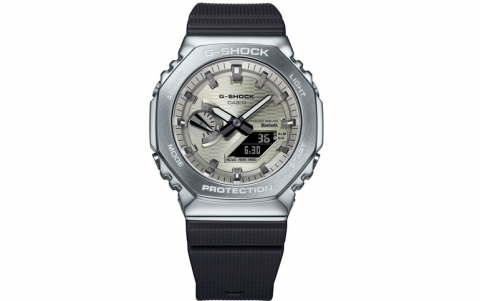
Chinese video piracy thriving
"...The Christmas bargain in China this year is "The Grinch" - one of dozens of pirated movies widely available on videodisc for as little as $1. After disappearing briefly following a crackdown in the late 1990s, China's trade in illegally copied video compact discs is thriving, hurting both Chinese and foreign film studios.
Pirated video CDs account for up to 95 percent of China's video market, said Li Yixin of the State Pornography and Illegality Crackdown Office. So far this year, he said, police have seized 40 million illegal audio CDs and videodiscs and shut down 25 illegal factories - 18 of them in southern Guangdong province, which borders Hong Kong. Video CDs are at the heart of China's home entertainment industry - the role played by videocassettes in the United States and elsewhere. While videocassette recorders became popular in the United States in the mid-1990s, the VCD player caught on in China, where they are a fixture in tens of millions of homes.
Pirated VCDs are easily made with a CD-ROM burner and stands selling them operate openly on sidewalks. Rental shops lend out discs, not tapes. Pirated copies mingle on the shelves with legitimate ones.
Meiya Audio-Video Co., a VCD rental chain with 187 outlets in Shanghai, is trying to fight piracy by buying only from state-approved outlets and has fired four employees for bringing pirated copies into its stores, said Li Qian, a company spokesman.
The crudest versions, complete with the audience's laughter and heads blocking portions of the screen, allow pirates to get popular titles like "The Grinch" into customers' hands just days after they debut in American or Hong Kong cinemas.
"Dr. Seuss' How The Grinch Stole Christmas,'' which has been in U.S. theaters for four weeks, is available in Shanghai for 14 yuan ($1.60). Other new releases for sale include "Charlie's Angels" and Robert De Niro's "Men of Honor."
Beijing has created a market for even the poorest-quality pirated VCDs by barring most movie imports to protect state-owned film studios. About 10 foreign movies are allowed in annually, including Hong Kong titles. Pervasive counterfeiting in other industries has led to an outcry by Chinese business leaders, who say it could destroy efforts to create the country's own distinctive, profitable brands.
China First Pencil Co., one of the world's biggest pencil makers, warned in August that piracy was wrecking its export trade. The company said cheap copies of its brand have taken away its Indonesian pencil market and 90 percent of sales to Hong Kong.
Piracy is straining China's relations with its trading partners just as it prepares to join them in the WTO. Washington says China alone accounts for half the money spent by U.S. companies on defending their patents and copyrights. Business groups predict that once in WTO, China will be taken to task about piracy..." NULL
Pirated video CDs account for up to 95 percent of China's video market, said Li Yixin of the State Pornography and Illegality Crackdown Office. So far this year, he said, police have seized 40 million illegal audio CDs and videodiscs and shut down 25 illegal factories - 18 of them in southern Guangdong province, which borders Hong Kong. Video CDs are at the heart of China's home entertainment industry - the role played by videocassettes in the United States and elsewhere. While videocassette recorders became popular in the United States in the mid-1990s, the VCD player caught on in China, where they are a fixture in tens of millions of homes.
Pirated VCDs are easily made with a CD-ROM burner and stands selling them operate openly on sidewalks. Rental shops lend out discs, not tapes. Pirated copies mingle on the shelves with legitimate ones.
Meiya Audio-Video Co., a VCD rental chain with 187 outlets in Shanghai, is trying to fight piracy by buying only from state-approved outlets and has fired four employees for bringing pirated copies into its stores, said Li Qian, a company spokesman.
The crudest versions, complete with the audience's laughter and heads blocking portions of the screen, allow pirates to get popular titles like "The Grinch" into customers' hands just days after they debut in American or Hong Kong cinemas.
"Dr. Seuss' How The Grinch Stole Christmas,'' which has been in U.S. theaters for four weeks, is available in Shanghai for 14 yuan ($1.60). Other new releases for sale include "Charlie's Angels" and Robert De Niro's "Men of Honor."
Beijing has created a market for even the poorest-quality pirated VCDs by barring most movie imports to protect state-owned film studios. About 10 foreign movies are allowed in annually, including Hong Kong titles. Pervasive counterfeiting in other industries has led to an outcry by Chinese business leaders, who say it could destroy efforts to create the country's own distinctive, profitable brands.
China First Pencil Co., one of the world's biggest pencil makers, warned in August that piracy was wrecking its export trade. The company said cheap copies of its brand have taken away its Indonesian pencil market and 90 percent of sales to Hong Kong.
Piracy is straining China's relations with its trading partners just as it prepares to join them in the WTO. Washington says China alone accounts for half the money spent by U.S. companies on defending their patents and copyrights. Business groups predict that once in WTO, China will be taken to task about piracy..." NULL





















